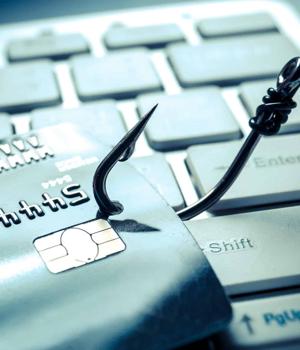Security News > 2005 > March > ISPs, telecoms join to 'fingerprint' Internet attacks

http://www.computerworld.com/securitytopics/security/story/0,10801,100695,00.html By Paul Roberts MARCH 28, 2005 IDG NEWS SERVICE Leading global telecommunications companies, Internet service providers and network operators will begin sharing information on Internet attacks as members of a new group called the Fingerprint Sharing Alliance, according to a published statement from the new group. The companies, including EarthLink Inc., Asia Netcom, British Telecommunications PLC and MCI Inc., will share detailed profile information on attacks launched against their networks. Information to be shared will include the sources of attacks. The alliance will make it easier for service providers and network operators to crack down on global Internet attacks more quickly, according to Tom Schuster, president of Lexington, Mass.-based Arbor Networks Inc., which launched the new alliance. The Fingerprint Sharing Alliance uses technology from Arbor called Peakflow to spot network attacks and automatically generate a profile, or "fingerprint," of the attack in a standard data file format called PCAP. That fingerprint information is passed along to other service providers closer to the source of the attack, which can then block the source of the traffic, Schuster said. Arbor wrapped features that support the Fingerprint Sharing Alliance into the last release of Peakflow, which came out earlier this year. Alliance members have been using Peakflow to share attack fingerprints since then, Schuster said. The alliance replaces an ad hoc system of e-mail messages and phone calls that operators of large networks have used to coordinate their response to attacks and threats, Arbor said. Because communication has been cumbersome, ISPs and network owners have had no incentive to share attack information. The alliance will make it easier for them to cooperate and will lower the threshold that attacks must surpass to get the attention of ISPs. Even attacks on small ISP customers will prompt a response from large infrastructure providers. Peakflow also scrubs the data in fingerprints so alliance members can't use them to sniff sensitive information on competitors, according to Schuster. "People are realizing that the world is a connected place. We have to empower service providers at the point of origin to have zero tolerance," he said. Cracking down on those behind even small attacks may also improve the overall health of the Internet and quell raging problems such as "botnets" of zombie computers that are used in large-scale attacks, according to Schuster. Membership in the alliance is not limited to Arbor customers or Peakflow users. Network owners that are not Arbor customers can generate their own fingerprints and accept PCAP-format fingerprints generated by Alliance members. However, Arbor's technology "speeds up the process considerably" by automatically creating and distributing the fingerprints. All current members of the alliance are Peakflow customers, and the company's roster of global ISPs gives the program bite, Schuster said. The alliance is a first step in addressing the problem of Internet attacks. Arbor hopes that the participation of leading service providers will compel competitors, as well as smaller network owners, to take part as well. _________________________________________ Network Security - http://www.auditmypc.com Free vulnerability test - How secure is your computer?
News URL
http://www.computerworld.com/securitytopics/security/story/0,10801,100695,00.html